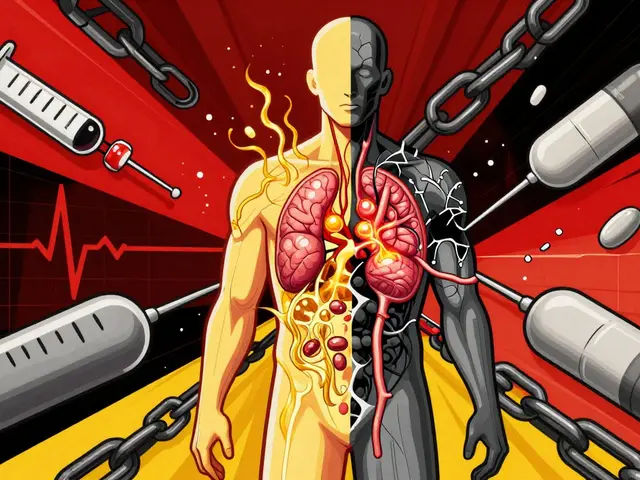Gut Health: Practical Tips, Treatments & Smart Supplements
Your gut controls more than digestion — it affects sleep, mood, and energy. If you’re dealing with heartburn, nausea, bloating, or loose stools, this page points to useful fixes, what needs a doctor, and which supplements can actually help.
Fast fixes and when to see a doctor
If you get occasional heartburn, try cutting late-night meals, avoid trigger foods (fried or very spicy meals), and raise the head of your bed 10–15 cm. For sudden vomiting or diarrhea, stay hydrated with small sips of an oral rehydration solution and rest your stomach for a few hours before trying bland foods like toast or rice.
Some symptoms need medical attention: high fever with stomach pain, blood in stools or vomit, severe dehydration, or weight loss without trying. Persistent acid reflux that interferes with life can need a proton pump inhibitor like pantoprazole (Protonix) — ask your doctor. If nausea and slow stomach emptying are common, talk about prokinetic options and newer Motilium alternatives; a gastroenterologist can help pick the right choice for you.
Everyday habits that help your gut
Fiber matters. Aim for a mix of soluble fiber (oats, apples, beans) and insoluble fiber (whole grains, vegetables) to smooth bowel movements. Add fiber slowly to avoid gas and drink plenty of water. Move daily — even a 20-minute walk after meals improves digestion and blood sugar handling.
Sleep and stress are underestimated. Poor sleep changes gut bacteria and increases reflux risk. Try a consistent sleep schedule and stress tools like breathing or short walks. Smoking and excess alcohol harm the gut lining — cutting them back pays off fast.
Supplements can help when used right. Probiotics may ease antibiotic-associated diarrhea and some IBS symptoms; pick a product with documented strains and follow the label. Tart cherry or sour cherry supplements can reduce inflammation and help recovery after workouts, but they’re not a cure for gut disease. For specific herbal or alternative options, check evidence on each herb and tell your healthcare provider about all supplements you take.
Be cautious when buying medicines online. Use licensed pharmacies and avoid sites that don’t require a prescription for drugs that should have one. If you’re treating infections like acute cholecystitis, antibiotics usually come from a clinician after proper evaluation — don’t self-prescribe.
Small changes add up: consistent meals, fewer trigger foods, better sleep, and a targeted supplement or medication when needed. If symptoms persist or worsen, book a visit with your provider — gut problems are usually treatable and often much easier to manage once you know the cause.
The Incredible Health Benefits of Probiotics
I recently learned about the incredible health benefits of probiotics and I just had to share it with you all! Probiotics are live bacteria and yeasts that are great for our digestive system, helping to balance the good and bad bacteria in our gut. They're known to boost our immune system, improve mental health, and even aid in weight management. You can find them in foods like yogurt, kefir, and kimchi or even take supplements. I'm definitely going to incorporate more probiotics into my diet, and I hope you'll give it a try too!
read more




